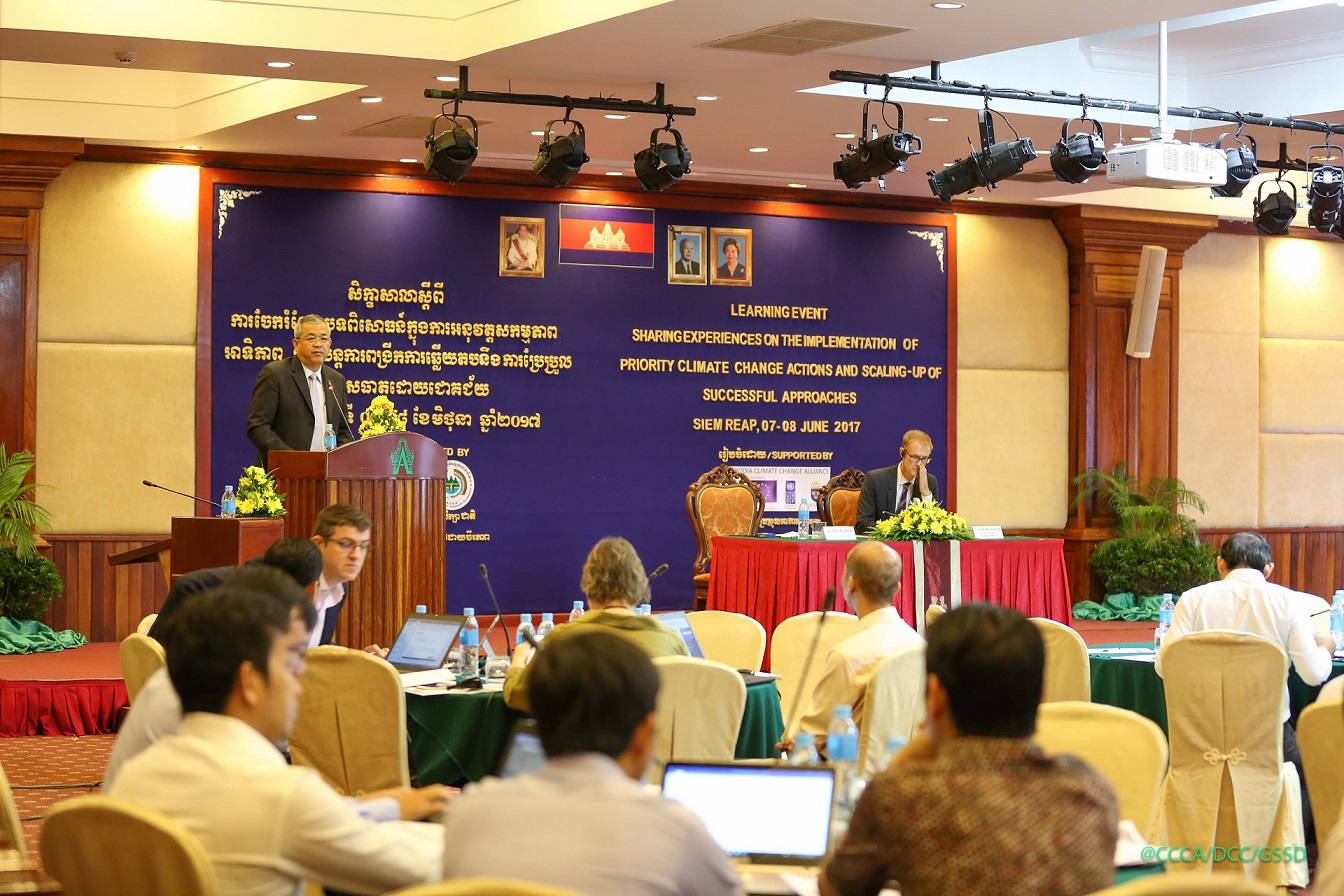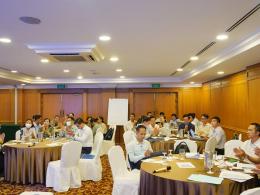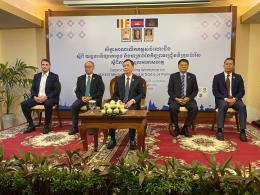 Siem Reap – 7 to 8 June 2017, Department of Climate Change (DCC), General Secretariat of the National Council for Sustainable Development (NCSD), with financial support of the Cambodia Climate Change Alliance (CCCA), organized a “Learning Event on Sharing Experiences on the Implementation of Priority Climate Change Actions and Scaling-Up of Successful Approaches” at Siem Reap Province with participation from 22 CCCA-funded projects, climate change focal points from all concerned ministries, and key other climate change projects to take stock of the progress made in the implementation of the CCCA grants, and discuss strategies to ensure these grants contribute the scaling-up of the climate change response in Cambodia.
Siem Reap – 7 to 8 June 2017, Department of Climate Change (DCC), General Secretariat of the National Council for Sustainable Development (NCSD), with financial support of the Cambodia Climate Change Alliance (CCCA), organized a “Learning Event on Sharing Experiences on the Implementation of Priority Climate Change Actions and Scaling-Up of Successful Approaches” at Siem Reap Province with participation from 22 CCCA-funded projects, climate change focal points from all concerned ministries, and key other climate change projects to take stock of the progress made in the implementation of the CCCA grants, and discuss strategies to ensure these grants contribute the scaling-up of the climate change response in Cambodia.
In his opening remarks, H.E. Tin Ponlok, NCSD’s Secretary General, stressed that fourteen government agencies have received support from DCC/CCCA for the implementation of priority actions under their Climate Change Action Plans. These projects are now at different stages of implementation: 8 started towards the end of 2015, and 6 have started at the beginning of 2017. In addition, 8 governmental and non-governmental organizations have received grants in 2016 for innovation and research projects focused on climate change priorities. Experience-sharing is thus very important to put a major focus on identifying strategies to scale-up successful approaches, and integrating lessons learnt into government policies and plans. He emphasized the need to fully mainstream climate change in sector strategies and budgets, and gradually move away from stand-alone climate change plans and projects.
Mr. Nick Beresford, UNDP country director, reflected on some of the early lessons learnt from the CCCA programme, including the need to reinforce synergies between sectors and projects to maximize impact. The experiences gained from the implementation of CCAP will be important for climate change policies.
The workshop was organized mostly around discussions, with a first set of discussions focused on the identification of the most promising climate change solutions that the projects have developed, the main issues the projects have faced and how they could be addressed. The second session discussed how to ensure the sustainability of their project approach, how to plan for scaling-up through public investment or market-based approaches, and the strategies to make this happen. Project management, implementation and reporting issues for CCCA grantees were also discussed.
A market place exhibiting project briefs and publications for climate change awareness-raising was also included in the event to provide an opportunity for participants to discuss their respective approaches and learn from each other in a more informal manner.
Some of the elements identified for follow-up are: emphasize i) linking successful projects with potential sources of sustainable financing (national budget, donors, investors); ii) ensuring that the new CC information platform meets the needs expressed by the participants.



